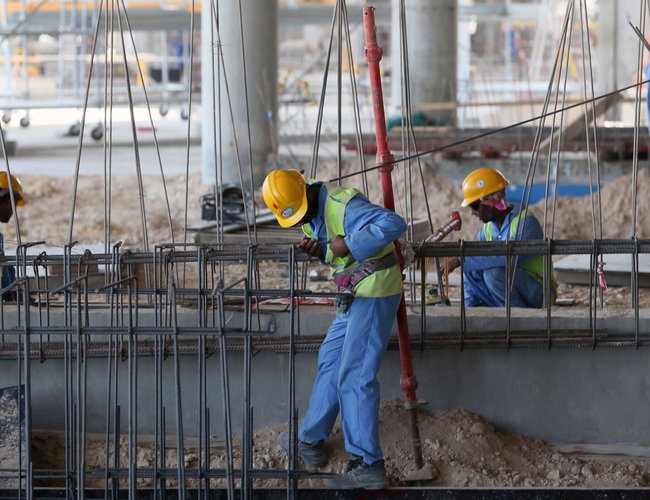
There are around 500,000 expatriate Nepalis in Qatar, many of whom are construction workers in that country’s construction sector.
Construction workers in Qatar, including thousands of Nepali migrants, are at risk from working in the intense heat and humid conditions in the country, a report by the Human Rights Watch said.
Although rules prohibit outdoor work between 11.30am and 3 pm from June 15 to August 31, the New York-based rights group said weather conditions outside these timings can also cause life-threatening heat-related illnesses.
“Enforcing appropriate restrictions on outdoor work and regularly investigating and publicizing information about worker deaths is essential to protect the health and lives of construction workers in Qatar,” said Middle East director at Human Rights Watch Sarah Leah Whitson.
About 95% of the labor in Qatar comprises migrant workers. Of these, 40% are involved in construction work, the HRW said.
There are around 500,000 expatriate Indians in Qatar, many of whom are workers in that country’s construction sector.
The Qatar government claims that they constantly review its labor policies to ensure migrant workers have the “necessary on-site protections”. Qatar is the first Gulf nation to impose restrictions on working hours during summer, director of the government communications office Sheik Saif Al Thani said.
“In addition to issuing harsh financial penalties,” Thani said, adding “Qatar is also the only country in the Gulf that shuts down companies that are found to be operating in violation of the ban.”
Deputy prime minister and foreign minister Krishna Bahadur Mahara discussed the issue of Indian workers’ welfare in the gas-rich Gulf nation with Qatari ambassador to Nepal.
Few Nepalese workers employed on World Cup sites died of heart attacks.
It is also reported that Qatar had refused to allow scores of migrants from countries, including India, Nepal, and Bangladesh, to return home earlier in March. Activists and trade unions said it violated the labor reforms to improve workers’ rights. A law making it easier for migrants to change jobs and leave the country -- where many of them have been recruited to build football stadiums ahead of the 2022 Fifa World Cup -- came into effect in December 2016.
The International Labour Organization had given Doha until November this year to implement the reforms or potentially face an investigation into the forced labor of migrants in the lead-up to hosting the World Cup
- TANAHU HYDROPOWER PROEJCT: A Significant Achievement
- Apr 15, 2024
- AMBASSADOR HANAN GODAR: Sharing Pain With A Nepali Family
- Mar 30, 2024
- VISIT OF KfW AND EIB TO NEPAL : Mission Matters
- Mar 25, 2024
- NEPAL BRITAIN SOCIETY: Pratima Pande's Leadership
- Mar 24, 2024
- NEPAL ARMY DAY: Time To Recall Glory
- Mar 15, 2024
















